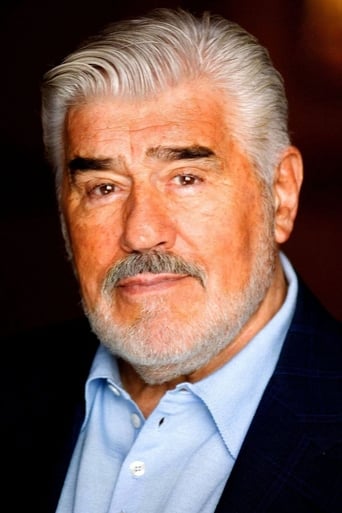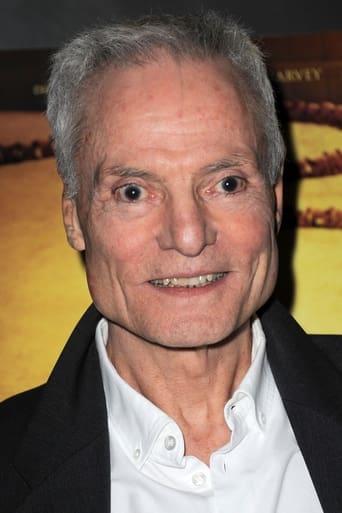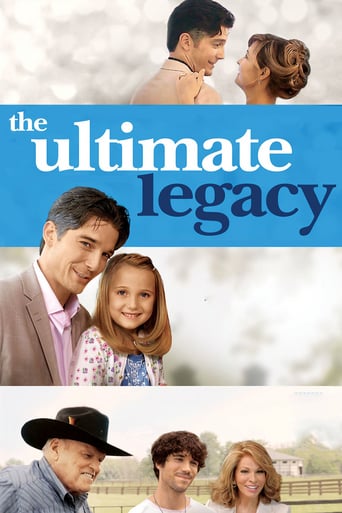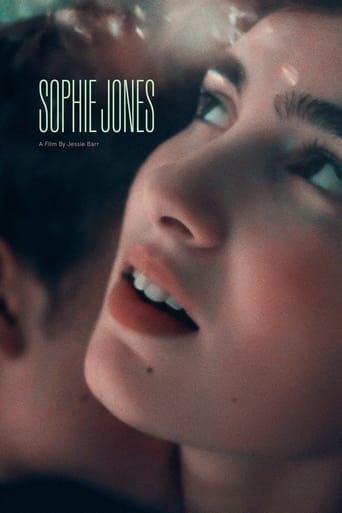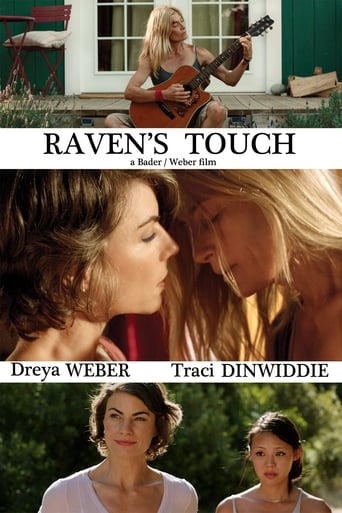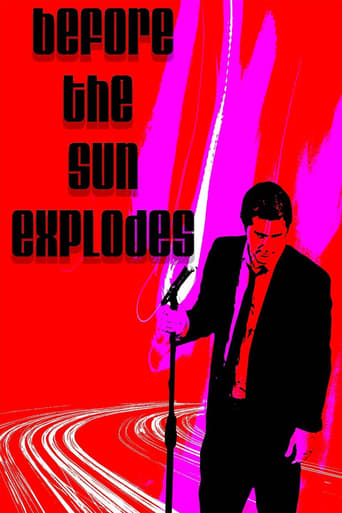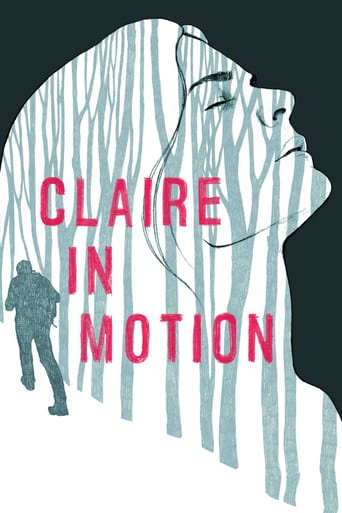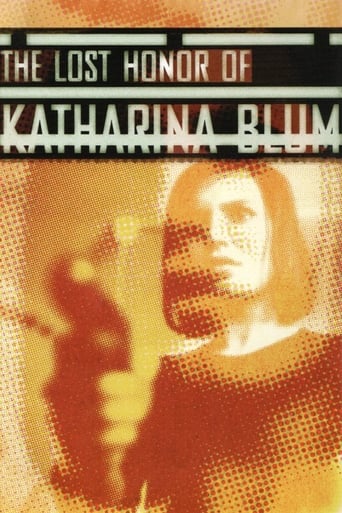
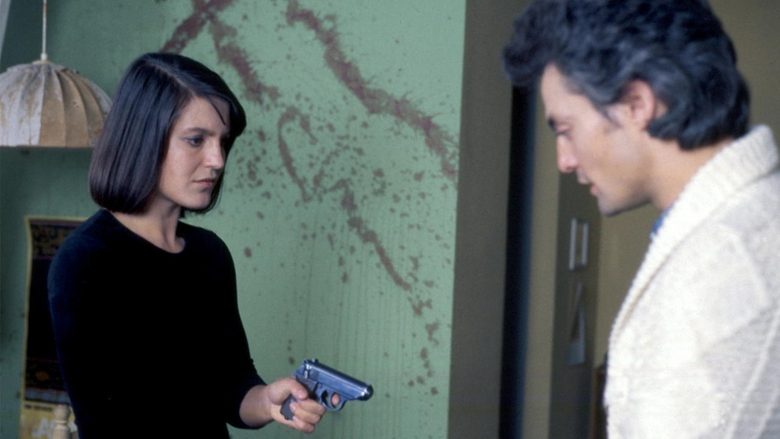
The Lost Honor of Katharina Blum (1975)
After a chance encounter with a wanted man, a woman is harassed by the police and press until she takes violent action.
Watch Trailer
Cast


Similar titles
Reviews
Husband-and-wife team Schlöndorff (his sixth feature) and von Trotta (her first feature) bring Heinrich Böll's sensational novel to the big screen, THE LOST HONOR OF KATHARINA BLUM is everything one may imagine from a political reportage made in West Germany during the 70s: following the guidance of a forensic eye, a steely heroine (masked by her innocent or accomplice opaqueness and her political slant) comes under harsh interrogation by the sloppy police force, who majestically fails to seize their suspect in the first place; unscrupulous reporters harass those related or involved like a callous fly, cook up stories to manipulate the reaction from the populace, thus to ensure that more papers are sold; more private matters will surface, some big name is enmeshed, some insider deal needs to be organised, whilst, Katharine Blum (Wrinkler), our protagonist, retreats to be a cog in the machine.But, at the end of the day, what happens is simply a love-at-first-sight romance between two strangers, although it doesn't sound so credible in the soil of German, but there is absolutely no political agenda involved, the only bug is, the target Ludwig (Prochnow) is a wanted anarchist, and in this case, the subsequent occurrence will destroy Katharina's tranquil life, eventually turns her into an avenging angel with blood in her hands, but at that point, we will emotionally stand by her as her vindictive resolution engages as the only satisfactory compensation (not just for her, but for viewers too) against a grim, unfair and repressive society where morality and humanity have lost their grounds to political alienation and media obsession.Both law enforcement and paper media, and their symbiosis are under scrutiny, although the ignoble journalist Werner Tötges (Laser) takes the brunt of reproach here, but the scene where he visits Katharina's dying mother in the hospital inconveniently imposes as a stretch of its own manipulative story-telling from the director-duo (since he has no qualms about publishing a truth- twisted report, there is really no need for him to torture a dying woman like that, the purpose of that scene is too obvious); Inspector Beizmenne (Adorf) and DA (Becker) aren't exactly chummy characters to hang out with, they represent a different sort of violence and cruelty, which viciously menaces to strip Katharina of her privacy using their black-face/white-face strategy, whenever they find something needs an explanation, whether or not it is relevant to Ludwig, whom she knows only for one night. A third party to be condemned (if only in a minor gesture) is Katharina's employer, the middle-class lawyer Hubert (Bennent), Katharina works for him as a housekeeper, and one of his client, the "mysterious gentleman" Alois (Vosgerau), whom Katharina has been seeing over several years but refuses to reveal to the police under any kind of questioning. They have self-serving reasons to play safe in the game which are understandable, it is their brazen desperation and self-obsessed consideration that is too sickening to stomach.The film refrains from being a more captivating thriller with its sparing usage of action pieces, the big arrest in the end hasn't been portrayed directly, so as to leave all the leverage to Katharina's final revenge scene, which doesn't disappoint, and Angela Winkler proves that she is such a powerhouse of stamina despite of her vulnerable first impression, gradually she grows on you with her slow disintegration during all the grilling and slander from media and public, but she never loses her core of strength, an excellent exemplar of a slow-burner in the German acting school.The epilogue scenes are another slap-in-the-face of the hypocrisy of the modern journalism, as clear as day, Tötges is killed not because he is a journalist, but an unethical bastard. Unnervingly, one has no trouble tracing the film's continuing relevance in today's world, which in fact, gives its sustaining life force of this 40-year-old curio.
The work of V. Schlöndorff and M. von Trotta deserves high praises, especially because of their ability to overcome the certain difficulties confronted whilst adapting a work of literature into a cinematic piece, or: from one branch of art (in)to another. To give a small example, Heinrich Böll's book adopts a first-person-plural-view/narration whereas the film refrains from this approach; the essence of a documentary such an approach provides, however, can be grasped instantaneously in the film, too. Being successful on most aspects, The Lost Honour of Katharina Blum suffers from its shortness. 106 mins. have been cleverly used by the directors, mostly by delivering the spectators what ought to be delivered essentially, but they fail in providing the links and some necessary depths to the characters and/or relations. An additional 15 minutes could have helped the directors to grave both their and the film's name deeper and in larger fonts. I, for one, found the most fascinating part of the film to be shot in 1975: a year in which Ulrike M. Meinhof, Andreas Baader, Gudrun Ensslin, and Jan-Carl Raspe still lives; Holger Meins recently died of hunger(!); the West Germany is yet to experience what they term as The German Autumn by the 2nd generation RAF; the 1st gen. RAF members (leading members above) have not been tried yet by the time the book was published (maybe even by the time the film screened); the West Germany Police getting increasingly armed and offensive, and so on. Among all these, we witness the "system" founding and feeding itself -- as a matter of fact, nothing but its own self. The police, the officials, still prevalent pro-Nazism, and still-in-power former Nazis, the media, the social status, abuse, and oppression of the women... With the system ruling, firmly administering, and when necessary, fabricating all these tools, factors, manipulating the people, the viewer gains an insight into the closed loop that the person is trapped in. Seemingly, there is not a(n easy) way out; the ones leading to a hazy light turn out to be dead-ends. And here, the viewer begins to understand what the title really means, and how subtly it is the (condensed) narrative (of) itself. These elements, pertaining to a "tightly-screwed" state system, all exist in the film but require a keen eye to catch them, let alone pondering on, given the length of the film. Despite its shortness, I believe that the adequate use of dialogues (even though sometimes they sound like irrelevant) and inconstant voices of characters, minute attention to decorations every here and there, Angela Winkler close-ups and her mimics, ... will convince the spectators that the directors pulled a good job, having come up with a worthy work.
Volker Schlöndorff is either a diabolically brilliant dissembler, or a gifted idiot savant. His public persona of hapless twittering political correctness (see the extras on this DVD) comforts the intellectual and critical elite, while his terse well-crafted movies give the lie to the bloody nonsense those elites espouse. The Lost Honor of Katharina Blum (1975) is an excellent example of this. The official plot line of the film, mindlessly parroted here on IMDb and elsewhere, describes the young Mrs. Blum as an earnest innocent, a simple housemaid unwittingly caught up in the toils of the vicious capitalist news media and Germany's crypto-Nazi police bureaucracy. This summary neatly fits the pink-tinged world view of Criterion, creator of the DVD version. It does not fit the movie itself. If you actually watch the movie, rather than just read what you are supposed to think about it, you will realize about three- quarters of the way through, that although the police may be bumbling wretches, they were right all along about Mrs. Blum. She really is a cool and calculating agent of subversion, not just the passing plaything of a terrorist on the run. She is not cool enough, however. Her casual contempt for everyone around her -- for the lawyer and architect who employ and befriend her, for her shady financier lover, for her ex-husband, even for her own terrorist network -- is expressed in her sloppy tradecraft. She drops a damning clue which leads the police directly to her terrorist contact. Oh well, she shrugs, he was a loser anyway, just an army deserter. There are plenty more where he came from. The Lost Honor of Katharina Blum is not Volker Schlöndorff's best film -- The Legend of Rita (2000), The Ogre (1996), and Homo Faber (1991), are all better movies -- but it is not bad. *What IS bad is an insipid documentary on this Criterion DVD. It is a 1977 amateurish interview with Heinrich Böll (1917-1985), who wrote the 1974 novel which inspired Schlöndorff's movie. Heinrich Böll was a Wehrmacht soldier in the 1940s, turned Movement philosopher in the 1960s. In his stories and novels he shared with a younger generation, including director Schlöndorff, a profound wartime insight. On the battlefield, Böll had realized that the true enemy of Hitler's National Socialism had not been Stalin's International Socialism; he was old enough to remember the nineteen happy years 1922-1941 when the USSR and Germany had been allied against the West, until Hitler's jealousy had spoiled the grand Socialist coalition. No, what had ultimately defeated Heinrich Böll and his fellow German National Socialists in 1945 had been America and her twin evils, liberty and free enterprise. Two decades later, in the 1960s, America was on the way to defeating the International Socialists, too, starting in Viet Nam, unless the American military could somehow be stopped there. Böll was a leading orator of the West European branch of the worldwide "Youth Movement," organized from Moscow to resist the advance of America and liberty. "The Movement," as it self-consciously styled itself, did defeat America in the early 1970s - - not in Viet Nam, but in Washington -- leaving much of the world to languish under Communism for another decade and a half, and leaving tens of millions of Asian, African, and East European people to be butchered, their blood spilled on the altar of Marxism. (Leftists are strange people. Rather than bragging of their butchery, they primly deny it ever happened -- while planning the next round.)Heinrich Böll was a celebrated intellectual hero of The Movement, a "Freedom Fighter" who had fought against freedom all his life, fighting with pen and sword, with typewriter and assault rifle. Böll capped his career with the 1972 Nobel Prize in Literature, its gold medal outshining his by then tarnished Iron Cross. Böll died with Communist global dominion still seemingly on the rise -- expiring four years before the collapse of the Soviet Union, where his books had long been Party-subsidized bestsellers. Böll's no longer youthful Movement lives on today, metastasized throughout the West. Because Moscow is now in remission, for the moment, anyway, The Movement has allied itself with the Islamic Jihadists to struggle against their common enemies, America and liberty, private property and freedom, as well as against Israel and the Jews. Anti-Semitism is back in fashion among the intellectual elite. Perhaps it never left. So, if you buy or rent this DVD, enjoy the movie as it was actually made, not as it has been described. And unless you have either a strong stomach, or a weak mind, skip the hagiographic Heinrich Böll documentary.
I read before the novel I saw the film (in my german class) and I have to say this adaption is way better than the book. The book by Heinrich Böll is not easy to read, it's actually very boring and sometimes you just want to throw it at the wall because Böll often just philosophies about some unimportant things. The film concentrates on the "real" story of Katharina Blum and creates an intense portrait of a young woman who becomes a victim of the tabloid press. It's really good and Angela Winkler gives us a superb performance. 7/10.



